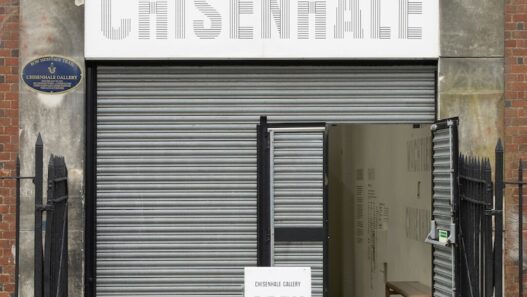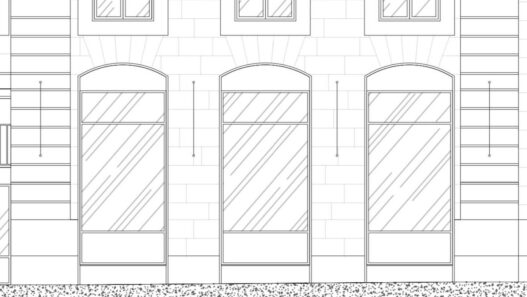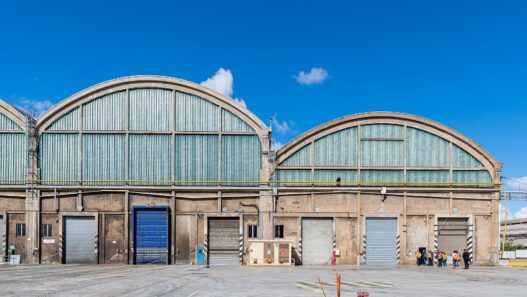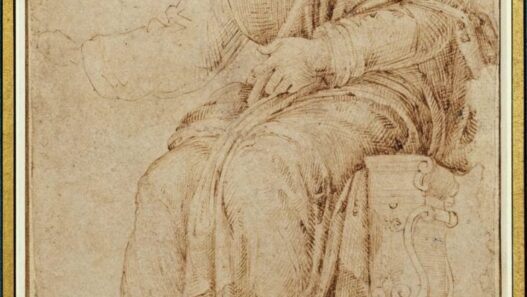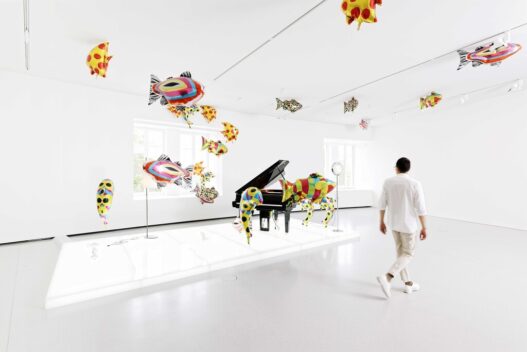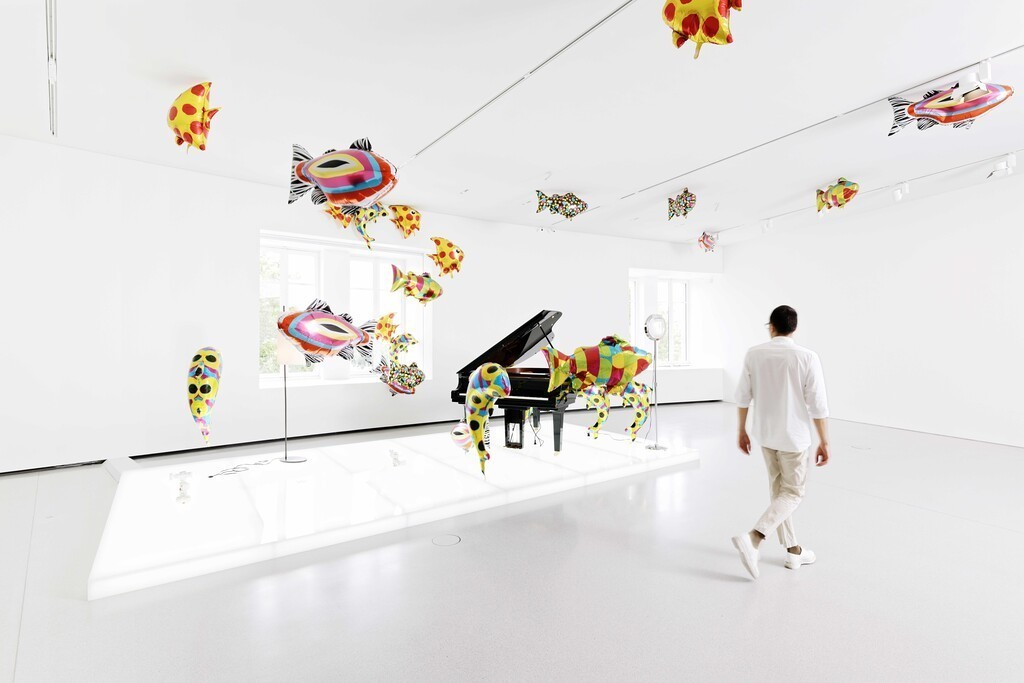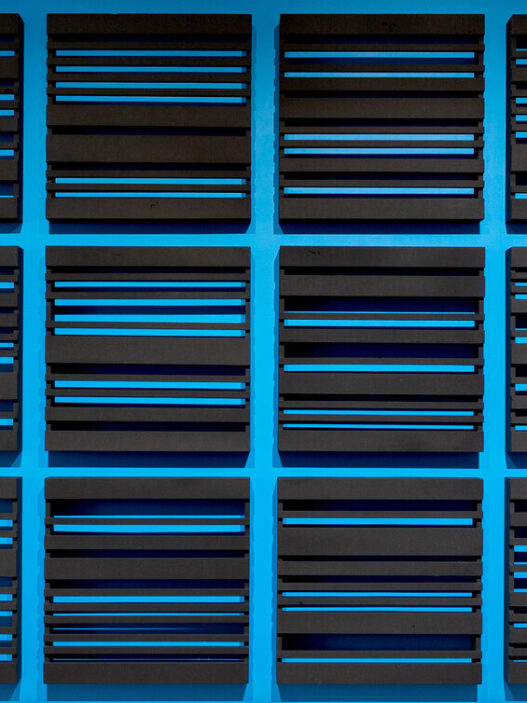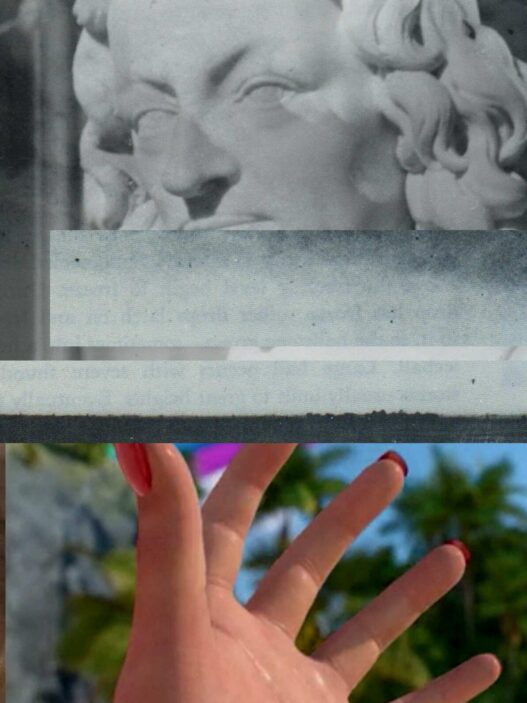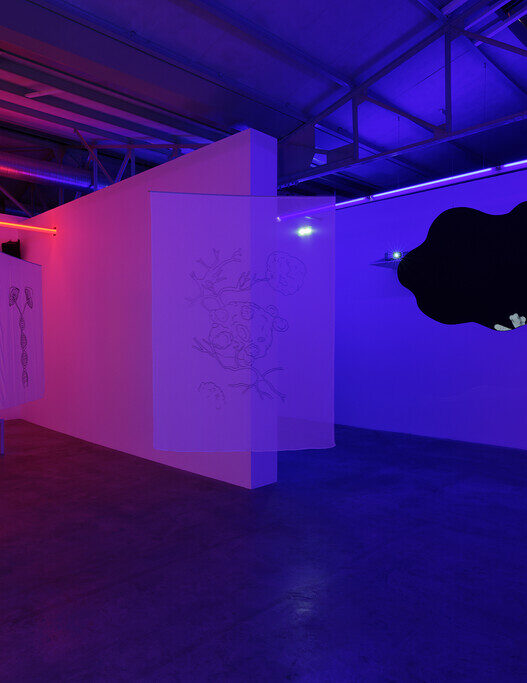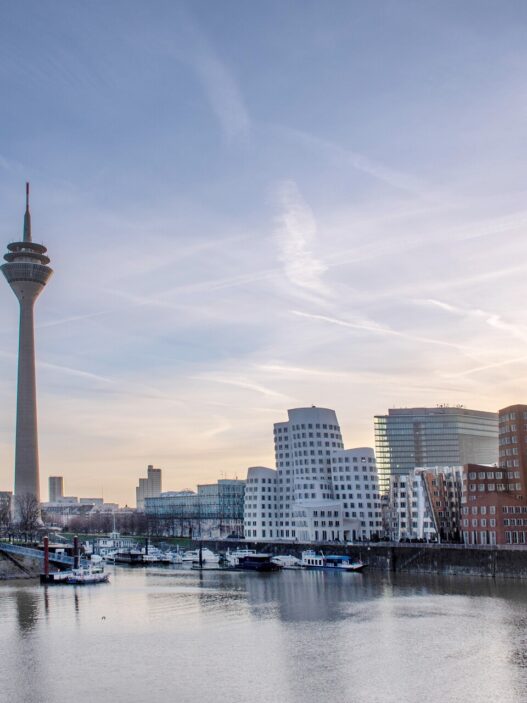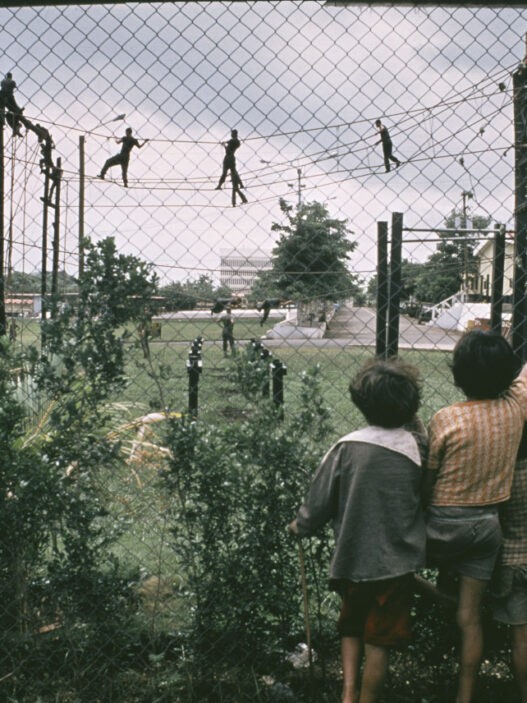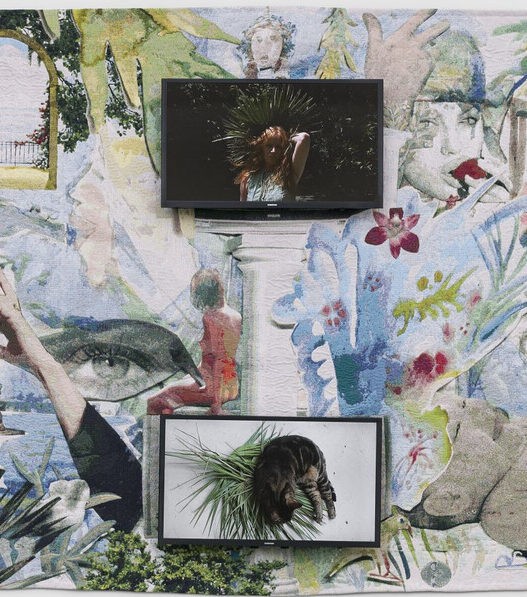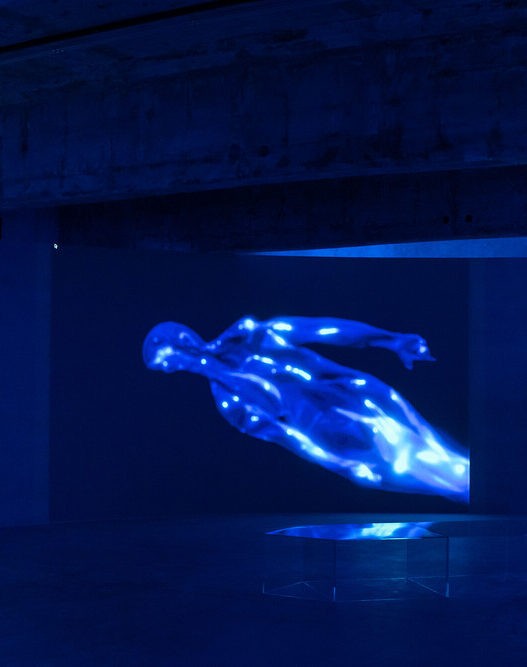June 22, 2022–January 2, 2023
Un seconde d’éternité takes viewers on a journey inspired by the question and experience of time, using a selection of artworks from the Pinault Collection. This new season unites summer and winter, the urgent nature of the here and now, and the search for the infinite, elusive though it may be.
This narrative, which was developed through the contributions of 20 artists, examines the present moment as it is suspended, ephemeral, populated by phantom presences, and woven together with the themes of loss and incarnation. It is important to locate “in one second the infinity of joy” and contemplation in an installation where the intensity of the presence of bodies and images is juxtaposed with their transient character.
Carte Blanche to Philippe Parreno
The Rotunda of the Bourse de Commerce is being transformed by Philippe Parreno into a new space where temporalities and climates coexist for the duration of the summer. Air, light, the past, present, and future, as well as reality and fiction, all produce sensations that alter visitors’ perceptions and physical well-being. Through the scenario suggested by Tino Sehgal, the character of Annlee is reincarnated like a mirage in this solar landscape, on a screen or in other bodies. In a bioreactor with living ferments, new forms of perception and life are created through the metabolism. Three moving suns known as heliostats survey the area by diffracting zenithal rays, hanging from the concrete walls and falling beneath the enormous glass dome. A sound wave unfolds in the space: it is Echo (Dancing in the Street), a composition by the musician Arca (with Nicolas Becker), replayed by an artificial intelligence (Bronze), itself influenced by the atmospheric conditions and the presence of visitors.
The legacy of Felix Gonzales-Torres
The show draws inspiration from Felix Gonzalez-Torres’ work and how it invites various forms of aesthetic engagement and experience. In Gallery 2, a fresh exhibition honoring Felix Gonzalez-Torres, Roni Horn, and their artistic partnership has been running since April. This tradition, which permeates Une seconde d’éternité, is supported by an understanding of the fleeting nature of existence and the work of art’s receptivity to visceral feelings. To confront impermanence and represent the passage of time, as in “Untitled” (Perfect Lovers) (1991) or the performative piece “Untitled” (Go-Go Dancing Platform) (1991), is one of Felix Gonzalez-Torres’ difficulties .
Shadows, reflections, and spectral presences
Shadows feature frequently in Une seconde d’éternité, including that of Callas who appears in Dominique Gonzalez-work Foerster’s and AnnLee, who haunts the Bourse de Commerce rooms through a variety of avatars. In the works of Larry Bell, Rudolf Stingel, Liz Deschenes, and Nina Canell, these apparitions extend as far as the viewer’s reflection.
Throughout the exhibition, the figure occasionally vanishes, as evidenced in Rudolf Stingel’s abstractions, where the bodies appear to be missing, or in Sturtevant’s appropriations, where Robert Gober’s garment serves as an empty space. Instead of these disappearances, there is a search for the present, as seen in the surface of Wolfgang Tillmans’ and Sherrie Levine’s transitory landscapes.
Unstable identities
This questioning of time is not just existential; in Felix Gonzalez-works, Torres’s the issue of intensity’s transience and political politics. The exhibition Felix Gonzalez-Torres and Roni Horn, which is housed in Gallery 2 and is inspired by the tenacity, radicalism, and dedication of both artists, reveals similar political or militant themes, such as the issue of identity, minorities’ places in society, the tragedy of AIDS, and a form of resistance to society’s violence and its demands. Other political uses of the spectrum include the bodies of migrants captured by Miriam Cahn in Mare Nostrum, plunging into the blue-toned abyss, and the haunting figures of Carrie Mae Weems, signifying the past and future ghosts of young African Americans.
Surviving images
According to Georges Didi-Huberman, the images in Une seconde d’éternité appear and vanish with the light as surviving images. In Philippe Parreno’s Quasi Objects, we hear the music of Franz Liszt’s Nuages gris (1881), which is reminiscent of the scene in Stanley Kubrick’s Eyes Wide Shut (1999) where Tom Cruise cradles a dead body in a mortuary to give it new life.
Marilyn, a video piece by Philippe Parreno, welcomes the viewer into the Waldorf-Astoria hotel suite that the actress stayed in during the late 1950s. The camera’s subjective point of view puts the viewer in the actress’ shoes as they concentrate on the fountain pen that is writing on the hotel’s stationary. The phone rings pointlessly The room turns out to be a set, and the writing is actually the mechanical labor of a robotic arm. What we believed we had seen was an illusion, a “picture of a ghost incarnated in an image,” as shown by a tracking shot.
Carte Blanche to Anri Sala
The Bourse de Commerce invites Anri Sala to participate into this round of time with its ghosts, appearances, and erasures this autumn to close this “second of eternity.” Anri Sala takes over several spaces with some of the iconic works drawn from the Pinault Collection (Take Over, 2017; 1395 Days without Red, 2011; Nocturnes, 1999), while the showcases in the Passage present twenty-four diptychs of prints and drawings (Untitled Maps/Species, 2018-2022). Time No Longer (2021), a video work, is being shown for the first time in France on a huge screen in the Rotunda.
Bourse de Commerce—Pinault Collection
2 Rue de Viarmes
75001 Paris
France


